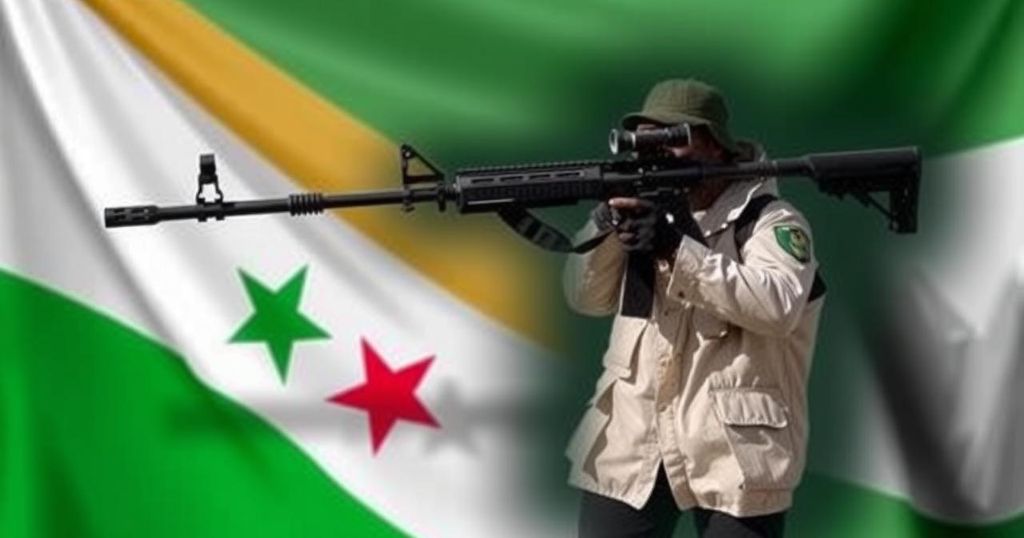UAE Assures US of No Arms Transfers to Sudan’s Paramilitary Amid Crisis

The UAE has assured the U.S. that it will not provide arms to Sudan’s RSF amid escalating humanitarian crises. In tandem, the U.S. has announced new aid to Sudan, emphasizing the need for peace efforts and humanitarian assistance as millions face famine due to the ongoing civil war.
The United Arab Emirates (UAE) has assured the United States that it will refrain from supplying arms to Sudan’s paramilitary group, the Rapid Support Forces (RSF). This commitment was conveyed by U.S. lawmakers amid ongoing humanitarian crises stemming from Sudan’s civil conflict, which has resulted in substantial fatalities and widespread famine affecting millions of individuals. In light of these assurances, U.S. representatives have agreed to withdraw their opposition to certain arms sales to the UAE, including advanced missiles.
The UAE has faced significant scrutiny regarding its involvement in Sudan, particularly allegations of arms transfers, which the government has consistently denied. Recent communication from the White House indicated that the UAE has confirmed it is not currently transferring weapons to the RSF and intends to uphold this stance moving forward. Lawmakers assert that if these assurances are not honored, they will pursue measures to obstruct arms sales to the UAE.
In response to the dire humanitarian situation in Sudan—where millions are on the brink of famine—the U.S. has initiated a new aid package of $200 million. Officials emphasize the urgency of international attention to the crisis, highlighting the need for increased humanitarian support and the importance of effective negotiations towards peace. The RSF has emerged as a dominant force in the conflict, controlling significant territories in Sudan, complicating efforts to achieve a ceasefire.
The United Nations has identified Sudan as facing one of the most severe hunger crises in modern history, with escalating needs for humanitarian aid. As various nations grapple with the implications of the ongoing conflict, calls for accountability from external actors are gaining momentum. Without decisive intervention and cooperation from involved parties, the circumstances for millions suffering in Sudan will likely deteriorate further.
The situation in Sudan stems from a severe civil conflict that has escalated since April 2023, posing one of the most significant humanitarian crises globally. The Rapid Support Forces, a paramilitary group implicated in this conflict, have drawn concern from international communities due to allegations of receiving external support, particularly arms. These conditions have created a widespread humanitarian disaster, with millions of Sudanese facing the threat of famine. The United States has emerged as a key player in addressing the humanitarian needs by announcing additional aid while simultaneously engaging in diplomacy to prevent further militarization of the conflict.
The UAE’s commitment to abstain from arming the RSF marks a critical juncture in U.S.-UAE relations concerning Sudan. As the humanitarian plight in Sudan continues to deteriorate, international actors must maintain vigilance and leverage their influence to foster negotiations and aid initiatives. The ongoing situation demands an immediate response to avert further exacerbation of the crisis, and the collaborative efforts of governments and organizations worldwide will be essential in this regard.
Original Source: www.france24.com








